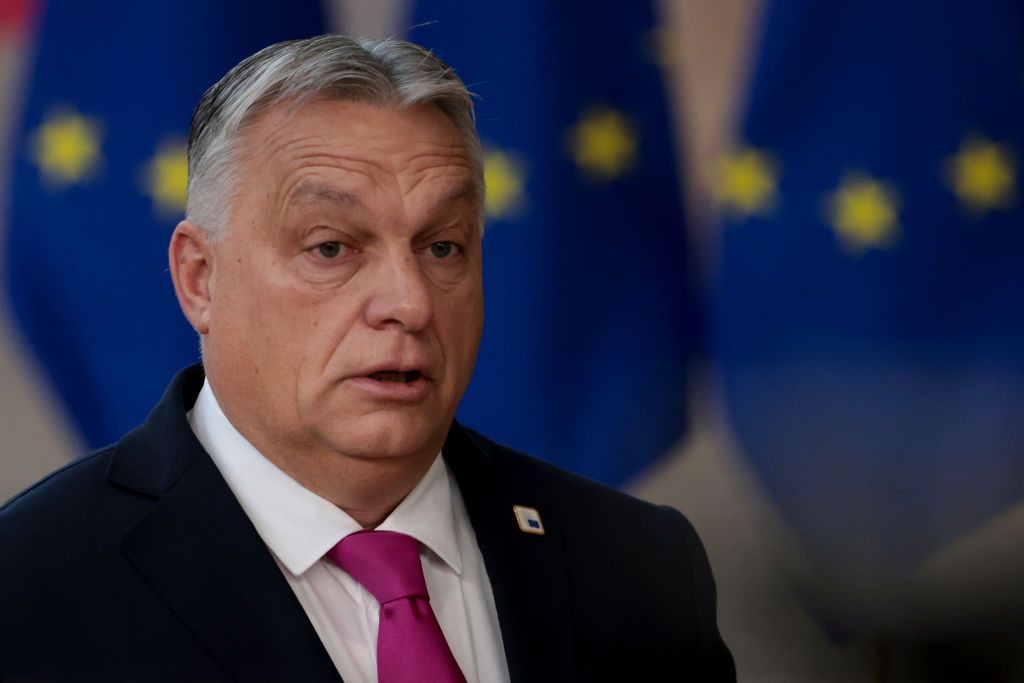Tusk: EU will find way to pass Ukraine aid funding 'with or without Orban'

The European Union will find a way to pass a proposed 50 billion euro ($54 billion) aid package for Ukraine "with or without" the support of Hungarian Prime Minister Viktor Orban, Polish Prime Minister Donald Tusk concluded at a press conference on Jan. 30.
Tusk's comments come ahead of the Feb. 1 special summit of the European Council, where EU leaders will resume talks about aid for Ukraine. The Hungarian prime minister, broadly seen as the most pro-Russian in the EU, blocked the decision on the EU’s financial assistance for Kyiv last December.
"Viktor Orban was left alone on the battlefield, he is the only politician who is so clearly anti-Ukrainian," Tusk said on Tuesday, adding that Orban faces a stark decision in the coming days as to whether or not to support funding.
Tusk, the former president of the European Council and a staunch supporter of Ukraine, also expressed optimism in eventually reaching an agreement on funding.
"Everything indicates that one way or another, we will find some solution to support Ukraine – with or without Orban."
European Commission President Ursula von der Leyen said earlier in January that the EU will pass the package with 26 members, implying it was possible to do so without Hungary's consent. She added that she "strongly preferred" having the aid pass with the approval of all 27 member states.
It is unclear how such a move to bypass the need for unanimous support would occur.
Earlier on Tuesday, Orban begrudgingly signaled his willingness to drop his opposition to the aid package, reaffirming a proposed compromise offer that would require the aid package to be reviewed on a yearly basis. Some EU countries have expressed skepticism at the proposal, insisting Hungary would block the funding year-over-year while seeking further concessions.
Calling for consensus among European allies, Tusk added that "it would be better, and we would all feel better in this situation, if the unity of Europe on this issue was preserved. And we are working on it."
In recent days, Hungary and Ukraine have seemingly taken steps to improve bilateral relations ahead of the pivotal EU funding summit. During a meeting on Jan. 30 with Hungarian Foreign Minister Peter Szijjarto, Ukraine's Foreign Minister Dmytro Kuleba stated that he considers Orban to be pro-Hungarian, not pro-Russian.
Despite some progress, Szijjarto noted that it may be a long time before a meeting between Orban and Ukrainian President Volodymyr Zelensky can take place.
The EU has considered using the "nuclear option" of revoking Hungary's voting rights if it again vetoes the $54 billion aid package - a move Hungary amounts to EU "blackmail."
A leaked document revealed by the Financial Times also notes that the EU has an alleged plan in place to shut off EU funding for Hungary in case the aid package was vetoed.
Senior EU leaders later denied that such a plan was in the works.














